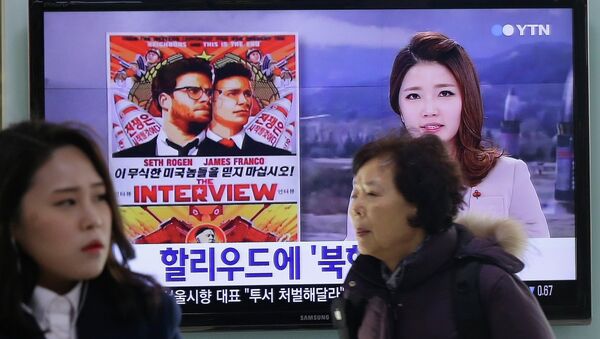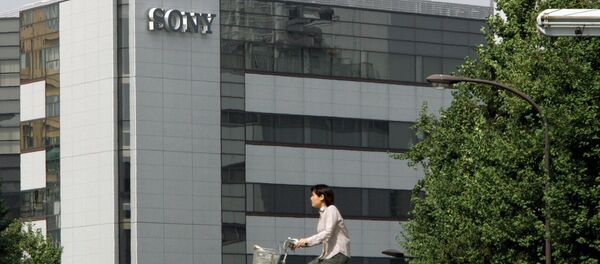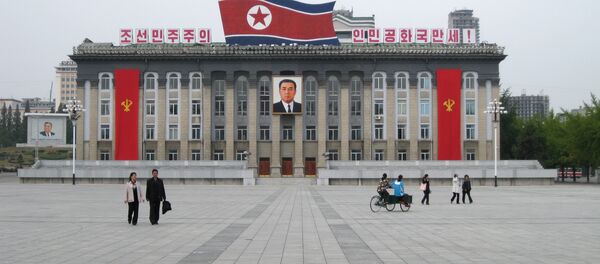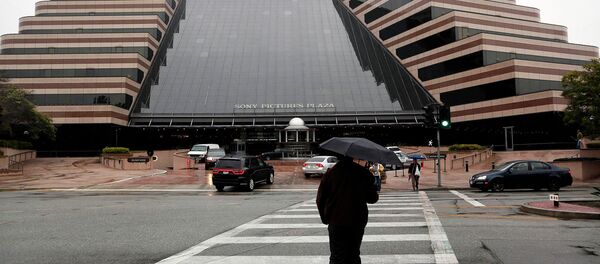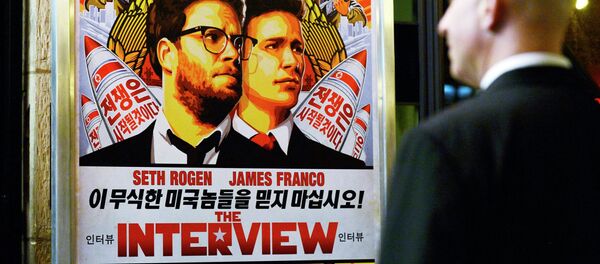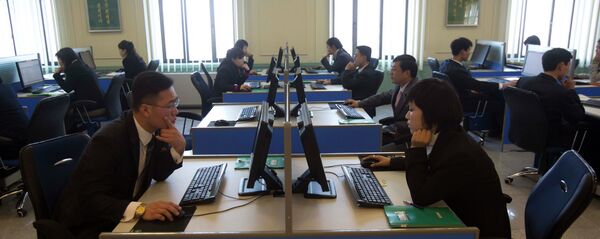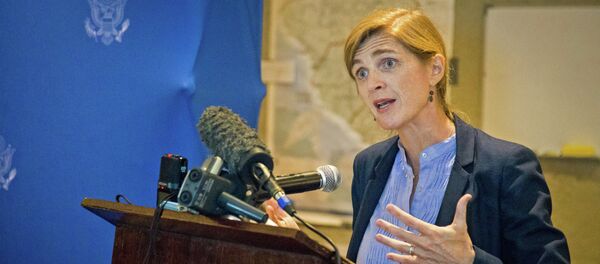MOSCOW, December 24 (Sputnik) - What began as a minor scandal over a hacking attack on Sony Pictures by a pro-North Korean hacking collective has since snowballed into a major diplomatic scandal, with the US accusing North Korea before the UN of attempting to silence freedom of speech in America. Let Sputnik bring you up to speed on the events as they unfolded over the past month.
On November 24, Sony Pictures Entertainment was hacked by a group calling themselves the "Guardians of Peace", in an attack which resulted in the theft of over 11 terabytes of information, including several movies, movie scripts, project proposals, and employee information on 47,000 Sony employees, including passwords, salary details, emails, and other sensitive information. The attackers were quickly accused of operating on behalf of North Korea; the FBI noted in early December that "the malicious code used against Sony is nearly identical to the hacking tools used in March 2013 against South Korea," a program which had been dubbed "Dark Seoul".
The GOP's stated demands for the film studio to "stop immediately showing the movie of terrorism which can break the regional peace and cause the war [sic]" confirmed at a minimum the hackers' sympathy toward North Korea. The hackers began releasing the stolen information, and threatened to release more, including details on the studio's top executives, unless the film release was halted. As embarrassing details emerged about gender and race-based pay gaps, as well as personal conflicts between film producers and actors, Sony would soon ask the media to destroy any internal information it had received.
A few days later, the North Korean media service Korean Central News Agency released a statement noting that "the hacking into…SONY Pictures might be a righteous deed of the supporters and sympathizers with the DPRK." However, the country continued to officially deny its involvement, noting that North Korea did not even know where Sony Pictures headquarters were located. As late as December 9 a spokesman for the US Federal Bureau of Investigation also noted that "there is no attribution to North Korea at this point."
The movie studio's cancellation announcement was quickly followed up by an announcement by US authorities December 17 that they had discovered decisive clues about North Korean involvement, and were reviewing options for an effective response. The investigation showed that the attack on Sony was routed by several servers located in Singapore, Thailand and Bolivia in the same pattern used in cyber-attacks on South Korea earlier.
Meanwhile, American politicians and celebrities began commenting on the events, some calling it a cyberwar, with others quickly turning it into a freedom of expression issue:
No one should kid themselves. With the Sony collapse America has lost its first cyberwar. This is a very very dangerous precedent.
— Newt Gingrich (@newtgingrich) 17 декабря 2014
"We cannot be told we can't see something by Kim Jong Un" -George Clooney re: 'The Interview' http://t.co/bwdytpaEy5 pic.twitter.com/ASYtjMle3A
— TODAY (@TODAYshow) 19 декабря 2014
On the insistence of US Senator Robert Menendez, who wrote a letter to Secretary of State John Kerry saying that North Korea should be placed back on the US's list of state sponsors of terrorism, Obama noted over the weekend that he would consider the possibility.
Ultimately, what began as a hacking attack against a film studio planning to release an uncouth comedy film about the assassination of a foreign leader has escalated into a wider conversation about foreign countries' attempts to censor American cultural freedom. Who knows what the scandal will lead to next?

